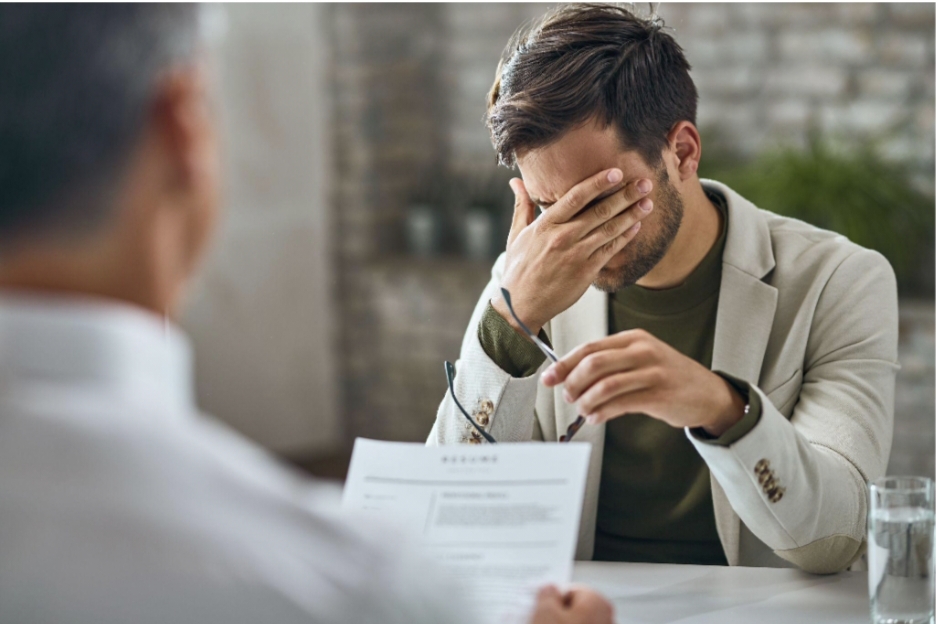In Wollongong, selecting the appropriate criminal defense lawyers is paramount to the outcome of charges or investigations, significantly impacting anxiety levels and long-term consequences. This document details the elements of a robust defense team, outlines the stages of a criminal matter in NSW, highlights crucial considerations when engaging a firm, and explains why a focused, specialist approach leads to optimal results.
The Value of Early Intervention
In criminal law, time is a critical advantage. Early intervention allows a defendant to establish a coherent strategy, preserve defenses, and avoid self-incrimination. Developing defenses and deploying strategies, irrespective of when statements are collected, requires prompt action. A specialist team can be engaged quickly to arrange bail, negotiate charges, or secure expert reports that support a defense or argue for leniency. Proactive legal representation can significantly reduce anxiety by providing an accurate overview of expected pathways, timelines, and costs from the initial stages of the case.
What a Top Wollongong Defence Team Offers
A criminal defense team in Wollongong should combine local courtroom familiarity with technical expertise across various offenses and legal forums. Look for solicitors who regularly appear in the Local, District, and Supreme Courts and possess a deep understanding of how different Illawarra police commands, prosecutors, and magistrates typically approach various offenses. This local knowledge simplifies processes such as bail applications, case conferencing, and contested hearing schedules, ensuring coherent and workable communication at every stage.
Core Practice Areas to Expect
A comprehensive criminal practice should cover both summary and indictable offenses. Examples include:
- Traffic and driving offenses: Driving under the influence of alcohol or drugs, appeals against license disqualification, driving with a suspended license, negligent driving, and dangerous driving.
- Violence and AVOs: Common assault, actual bodily harm, grievous bodily harm, domestic violence offenses, Apprehended Violence Orders (AVOs) and Apprehended Domestic Violence Orders (ADVOs), and breaches thereof.
- Property and dishonesty: Theft, shoplifting, fraud, embezzlement, receiving stolen property, and breaking and entering.
- Drug offenses: Possession, supply, and allegations of cultivation or importation.
- Public justice offenses: Resisting or hindering police, bail order breaches, perjury, and intimidation.
- Serious indictable crime: Sexual offenses, manslaughter, murder, and the unlawful possession or use of firearms.
- Appeals: District Court appeals against severity and conviction, and higher court appellate work.
Breadth is crucial because effective defense often integrates issues from multiple dimensions of a case—for example, forensic challenges in a drug matter combined with police procedure admissibility arguments, or mental health diversion with structured rehabilitation for a driving offense.
A Brief Overview of the Criminal Procedure in New South Wales (NSW)
While each case is unique, most progress through identifiable stages:
- Investigation: Police inquiries, interviews, and evidence gathering. Legal counsel at this stage can assist in deciding whether to undergo an interview and how to respond to requests for information.
- Charge and CAN: Charges are laid via a Court Attendance Notice with a first appearance date. Solicitors may apply for disclosure, argue for bail, and prepare bail advice if the accused is in custody.
- First mention: Directions are made, a brief of evidence is ordered, and timetables are set. Prosecution and defense can engage in early case conferencing to address issues or negotiate charges.
- Case conference and charge certification (prosecution for indictable matters): A deal may be struck involving charge amendments or withdrawals as needed.
- Hearing or trial: Contested issues of fact and law are resolved. The defense may present evidence and cross-examine police and other experts.
- Sentencing: Following guilty pleas or findings, the outcome can be significantly influenced by focused submissions, character references, treatment reports, and steps taken to remediate the situation.
- Appeals: Section appeals against severity or conviction are secondary assessments where arguable gaps or new information may be presented.
Each member of the firm’s long-standing division develops a plan that ensures every aspect is addressed timely before the hearing, separating the negotiation strategy from the hearing strategy, and ensuring mitigation is performed preemptively, not at the last minute.
How Great Defence Teams Win Better Outcomes
“Winning” is not always a “not guilty” verdict; in some cases, that is the best possible outcome. Positive results also include:
- Discontinuance of charges: In cases where the evidence does not justify prosecution or is unlawful.
- Diplomatic reframing of charges: To more accurately reflect the underlying facts and avoid overly punitive consequences.
- Section 10 and Release Orders: Including, in appropriate cases, no conviction recorded.
- Mental health diversions: In accordance with relevant legislation.
- Non-custodial results: Involving restoration, reparation, treatment, and meticulously crafted submissions.
- Preservation of licenses: Resulting from appeals and persuasive evidence related to road rules.
- Targeted submissions: For pardon applications, repayment plans, and strategies to prevent avoidable consequences.
The most successful firms combine a keen, clinical approach to the brief with human elements, addressing complex underlying problems (addictions, health issues, financial difficulties, family issues) in a plausible, constructive manner that satisfies the court.
Inquiries to Make Prior to Selecting Legal Representation
Choosing legal counsel is both a technical and personal decision. Consider the following:
| Factor | Details to Consider |
|---|---|
| Specialisation | Does the practitioner and their team primarily, or exclusively, practice in criminal and traffic law? Do they possess Accredited Specialisation or have senior practitioners with significant court experience? |
| Court Frequency | What is their monthly attendance record at the Wollongong Local Court, District Court, and Supreme Court for similar matters? |
| Preliminary Strategy | Based on the facts, what likely pathways are available—negotiation, hearing, early plea with structured mitigation, or a combination? What mitigation measures, expert steps, and disclosure are anticipated? |
| Contact | What is the expected timeframe for receiving communication? Will there be one primary solicitor contact? |
| Fees | What are the offered fixed fees for specified case stages? What is included, what triggers additional fees, and what is the protocol for Barrister fees if counsel is briefed? |
| Time Expectations | What are the realistic estimates for disclosure, conferences, and listing? How will case postponements or delays be managed? |
| Outcome and Proof | Can they provide anonymized case studies related to comparable matters? What typical outcomes for such charges can they describe based on their experience with similar cases? Include best and worst-case scenarios for building trust and clarity. |
The balance between best and worst-case scenarios will help in building trust, clarity, and responsiveness—use this to select a legal firm.
Evidence, Disclosure, and Expert Input
Defense outcomes depend on the quality of briefs and the swiftness of inquiries. Effective teams:
- Request disclosure on time and challenge unwarranted gaps and redacted information.
- Hire necessary experts (toxicology, accident reconstruction, digital forensics, psychiatry/psychology) early enough to influence negotiations.
- Undertake detailed analysis of admissibility problems, such as police searches, cautions, continuity of exhibits, and identification evidence.
- Create compelling mitigation materials: medical and treatment documents, employment history, character references, and hearing repayment plans.
This evidence-driven strategy provides leverage during case conferencing and ensures contested hearings focus on substantive evidence, not conjecture.
Tactical Plea Decisions: When and Why
Pleading guilty early can lead to less severe punishment, but this applies only when the charge, facts, and legal situation are solid. A well-prepared defense team:
- Addresses the prosecution’s case and evaluates the optimal strategy.
- Negotiates the fact sheet to ensure proper conduct if a plea is advisable.
- Times the plea to maximize claim discount advantages while allowing for maximal adjustments to charges or fact enhancements.
- Prepares sentencing materials simultaneously with, not after, the plea entry.
This meticulous organization avoids hurried decisions and protects the client’s longer-term interests.
Costs, Value, and Austere Discretion
Criminal defense is a valuable asset that directly impacts one’s liberty, livelihood, and reputation. To address costs:
- Identify phases of work that can be undertaken for a fixed fee (mentions, brief review, plea, hearing day rates).
- Clearly state what will be done and what is excluded, especially disbursements and counsel fees.
- Request and review written cost agreements and regular billing updates tied to specific milestones.
- Proportion and manage resources according to the gravity of the case: serious indictable matters may justify wider expert input, while minor summary matters can be handled with more efficient and focused steps.
The most important thing to remember is that value is derived from the strategy, preparation, and execution of the plan in the courtroom, not simply the number of hours worked.
Personally Preparing to Greatly Improve Outcomes
Clients can achieve worthwhile results by proactively engaging in self-help measures:
- Refraining from speaking to the media or posting on social media about the matter.
- Completing prescribed counseling, programs, or treatment efficiently.
- Securing appropriate testimonial character references focused on insight, remorse, and rehabilitation.
- Adhering to bail and any interim orders without authorization.
- Keeping a record of the case chronology and making documents available to the lawyer in a timely manner.
These steps demonstrate a pattern of behavior associated with acceptance of responsibility and active rehabilitation, which courts regard favorably at sentencing.
The Importance of Local Expertise in Wollongong
The legal landscape of Illawarra operates within its own ecosystem. Local legal professionals understand the nuances of listing practices and available times for conferences with prosecutors, adjusting their case strategies accordingly. While working relationships are professional rather than preferential, knowledge of local procedures, people, and practice directions helps eliminate friction and surprises, fostering faster movement toward better results.
Concluding Remarks
Criminal allegations carry undeniable risk, but outcomes are significantly more favorable when an expert is consulted as early as possible and a defense structured around evidence is presented. These factors are critical. A Wollongong team, in this context, should be clear and open about costs, proactive in evidence disclosure, thorough about law and evidence, and communicate with empathy. The right team of lawyers can provide clarity and respect throughout the process, while maximizing the chances of achieving a favorable result, even in the most challenging situations.





